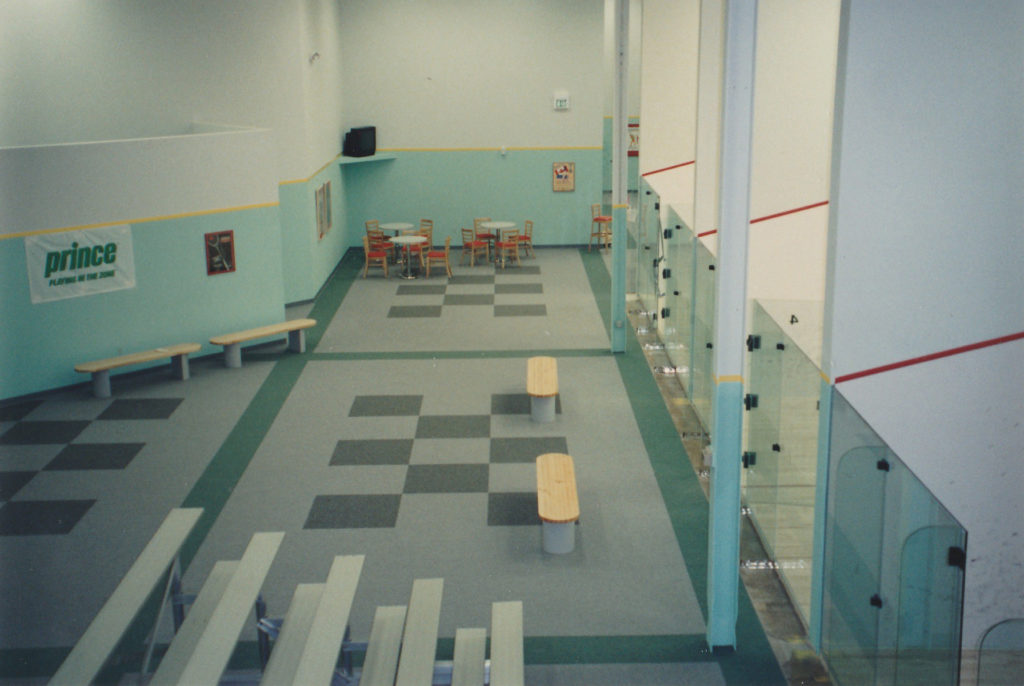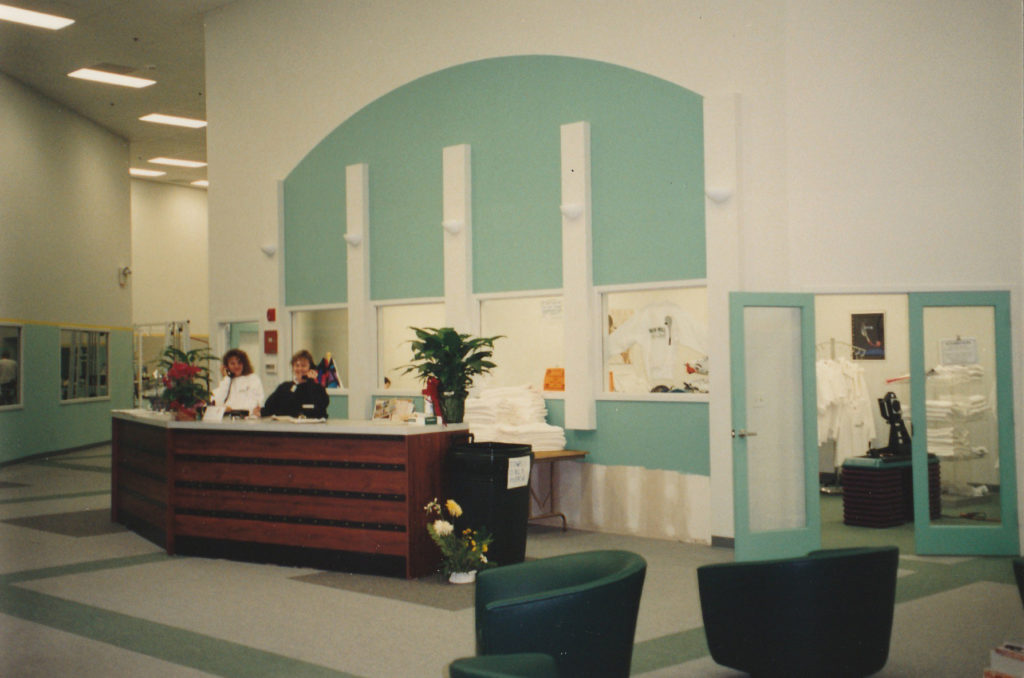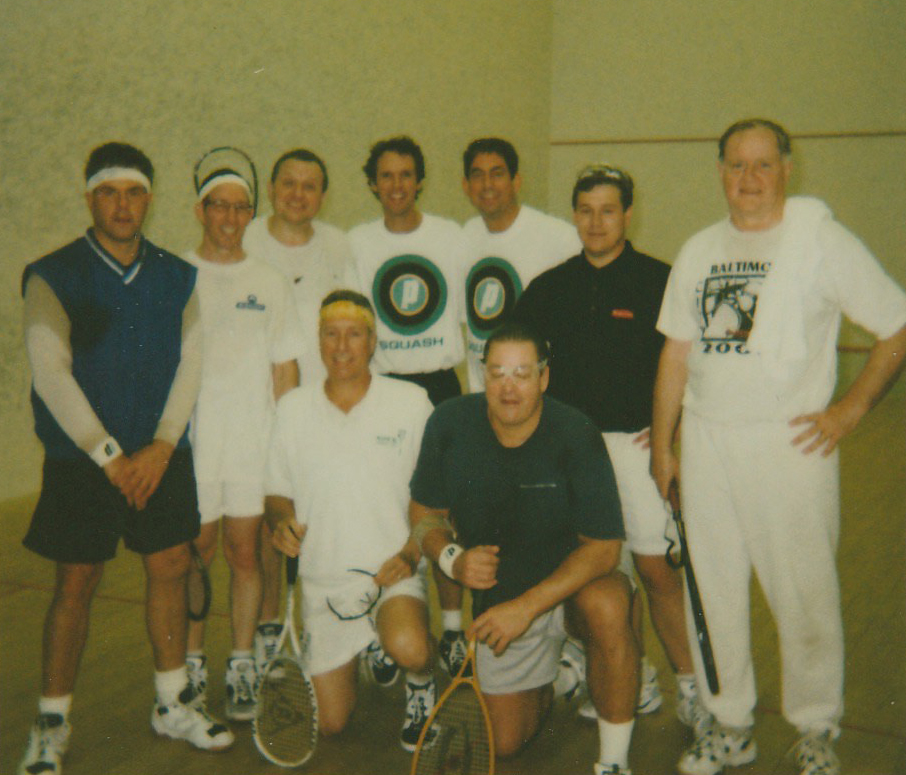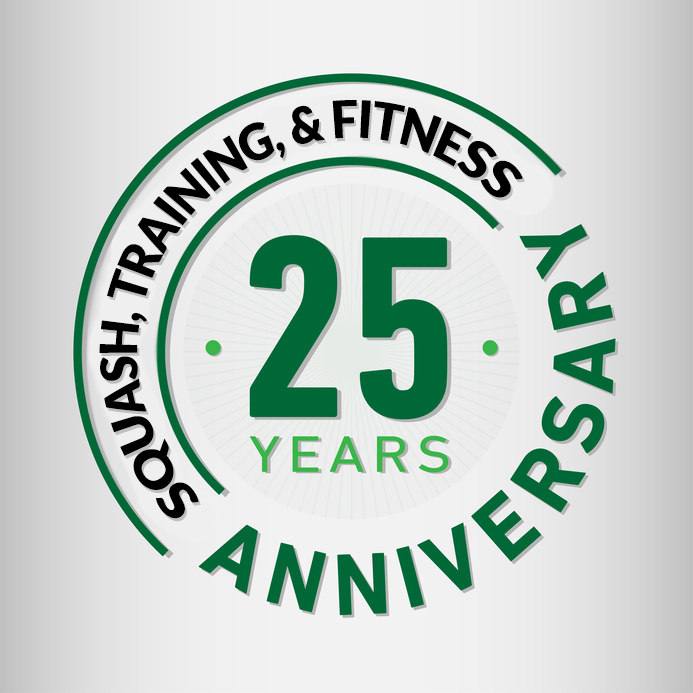By James Zug
A flagship squash facility in Baltimore, Meadow Mill Athletic Club is celebrating the twenty-fifth anniversary this autumn. There will be a week of squash, highlighted by a $5,000 PSA tournament, a junior gold tournament and a fiesta on November 3.
That is exactly twenty-five years and a day after Meadow Mill originally opened its doors. It was an unprecedented moment. Commercial, public squash in America started in 1973 when Berwyn Squash & Fitness opened. Dozens of copycat clubs followed suit around the country, some pay-to-play, some with monthly memberships, some with annual dues. Anyone could join.
It was a revolution for the hitherto private sport. But a key fact about the commercial clubs was scale. Berwyn opened with four singles and two doubles courts. Some were bigger—Uptown in New York had fourteen courts, Thirteenth Street in Cleveland had thirteen. But unlike some of the classic facilities in Europe and the Antipodes, in America there were very few double-digit courts facilities, especially ones that also looked like a regular fitness club. And those that did have a lot of courts tended to close or quickly converted their courts to something else.

Until Meadow Mill.
Nancy Ward Cushman was in her mid-twenties when she picked up squash at Paul Dietz’s house: he had a court built next to his garage near the Aberdeen Proving Ground in northern Maryland. Getting passionate about the game, she started driving to a women-friendly, key club in Baltimore, the Racquet Club of Roland Park. The club, converted from the old Girls Latin School gymnasium, had two hardball singles and one doubles court.
In 1985 Cushman and her then-husband Frank Cushman bought Roland Park. They increased membership, in part by encouraging local schools to start squash programs. Cushman also started coaching the varsity women’s team at Johns Hopkins. Roland Park was maxed out. I remember playing there at the time and the courts were constantly busy. And it was a social place, too—coming in for a morning game, you never knew who you’d find sleeping on the couch.
The Cushmans started looking for a larger facility. A Roland Park member, Sam Himmelrich, brought them to an old London Fog factory in the Hampden neighborhood of Baltimore. It had high ceilings and not a lot of weight-bearing walls. They put in eight softball courts—these were the first wide courts in the city, so the timing could not have been more perfect—and two doubles courts. On November 2, 1992 they opened Meadow Mill Athletic Club. Mark Talbott and Satindar Bajwa gave the opening exhibition.
But the last two words of the club’s name meant something. More than a squash club, MMAC had a large purpose-built day-care room; fitness studios; and a kids’ room upstairs with ping-pong, pool table and fussball. On the Meadow Mill letterhead it read: “Squash. Group Fitness. Weights.”

MMAC never stood pat. The Cushmans continued to add amenities: spinning in 1994, then a weight room, then a Pilates studio, two massage rooms, even a conference room. Two-thirds of MMAC’s 2,000 members are non-squash players. Yet in 2001, they doubled down on squash. Meadow Mill went from 28,000 square feet to almost 40,000, and she added six more singles courts, becoming the largest public club in the country. At the same time, the Cushmans finally sold Roland Park.
The club has persevered through biblical challenges. In July 2004 the Jones Falls river, which flows right past the club, rose above its banks. Floodwaters submerged cars in the parking lot, flipped other cars and coursed into the club leaving a foot and a half of water in each court and ruining thousands of dollars of exercise equipment. The floors of all sixteen McWil courts and a 1,200 square-foot fitness studio had to be replaced. Soon after the flood, the Cushmans divorced; Frank moved to Florida in February 2005 and Nancy became the sole owner.
The river flooded again in 2014, again sent water into the club, but this time she only had to re-sand the floors. Both times the club was closed for three weeks. A 2016 storm flooded the parking lot, destroying many vehicles. And in the summer of 2008, thieves cut the copper out of the air-conditioning units on the roof, so the club was without AC for two weeks.

Meadow Mill, probably unique among all American clubs, has hosted nearly every major U.S. championship at least once, from the National Singles to National Doubles to National Juniors to National Mixed to the Howe Cup. It has hosted neutral-site collegiate matches and served as the training ground for the Naval Academy’s remarkable run in the Intercollegiate Doubles.
If you spend time at MMAC, you’ll see a diversity of backgrounds. In 2007 Cushman started a non-profit foundation to bring in underserved Baltimore kids to MMAC. SquashWise, Baltimore’s urban program, is headquartered at Meadow Mill. Peter Heffernan, the club’s innovative racquet director since 2004, keeps the courts especially busy during winter afternoons with teams from a dozen different local schools. And you’ll see a deep sense of community. Three staff members—Evelyn Gee, Teresa Smith and Nancy Wolf—have been with the club since 1992.
MMAC has also served as a role model for other mega-facilities around the country, most notably Fairmount Athletic Club outside Philadelphia.
Meadow Mill’s lease runs out in 2022. Himmelrich recently bought a nearby old Pepsi factory, so perhaps a redevelopment in the area is in offing. In the meantime, Meadow Mill keeps grinding along, crucially demonstrating that large, squash-centric, commercial clubs are viable in America.


